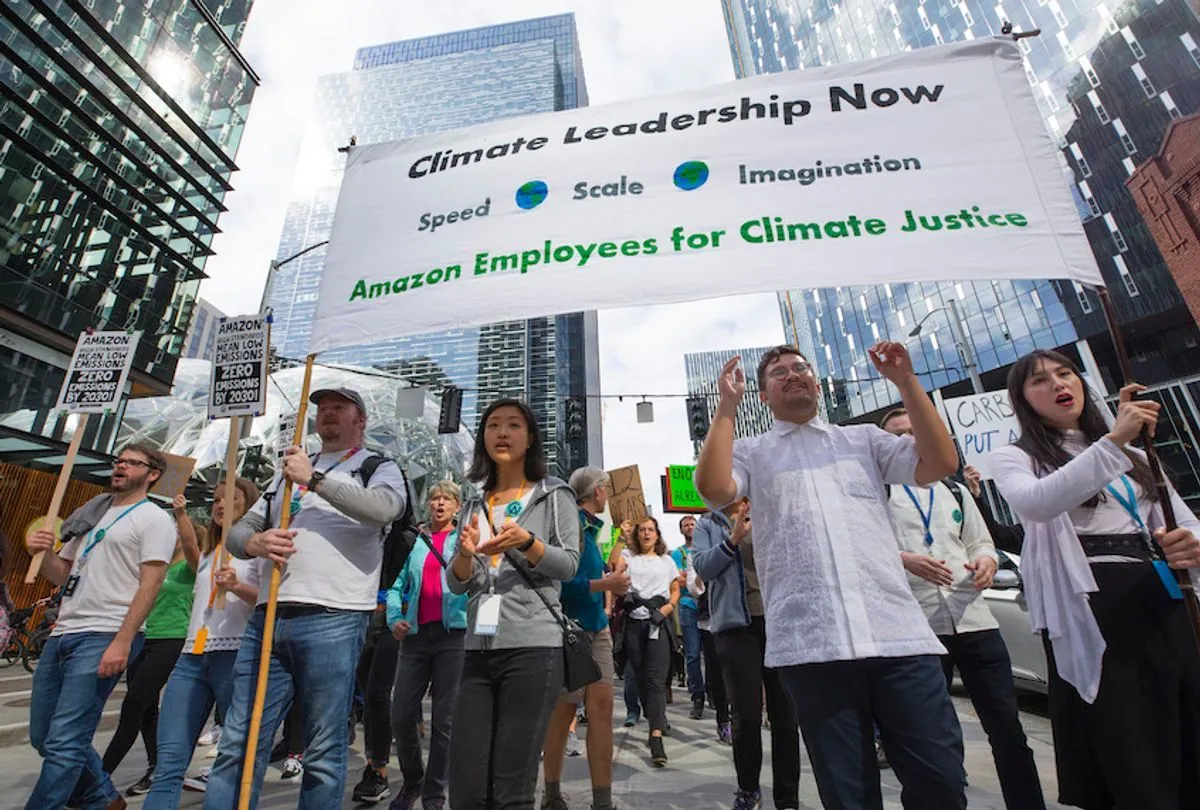Political Chatter Rises in U.S. Workplaces as Election Nears
New Gallup data reveals increasing political discussions at work, with nearly half of U.S. employees engaging in such conversations. The trend raises concerns about workplace culture and productivity.

As the United States approaches its presidential election, political discussions are becoming increasingly prevalent in workplaces across the nation. Recent data from Gallup indicates that nearly half of U.S. workers engaged in political conversations with colleagues in the past month, a trend that is likely to intensify as the election draws nearer.
The rise in workplace political discourse presents a growing challenge for managers, who must navigate the delicate balance between free expression and maintaining a harmonious work environment. This issue has gained urgency in recent months, as employees nationwide have participated in various forms of activism, including protests and walkouts, over both corporate policies and political matters.

The impact of political discussions in the workplace varies across different demographics and work arrangements. Gallup's survey reveals that hybrid and in-person workers are more likely to engage in or overhear political conversations compared to their remote counterparts. Specifically, 48% of hybrid workers and 54% of on-site employees reported discussing politics, while only 28% of remote workers had similar experiences.
Generational differences also play a role in workplace political discourse. Younger employees tend to feel more uncomfortable with political discussions at work, but paradoxically, they are also more likely to report growing closer to colleagues due to shared political views. This phenomenon reflects the complex nature of political interactions in professional settings.
Gender disparities are evident in workplace political engagement, with 54% of men reporting political conversations compared to 35% of women. This trend is consistent across various industries, with male-dominated fields like construction showing a higher prevalence of political discussions than female-dominated sectors such as healthcare.
While some employees find that political conversations foster a sense of inclusion and strengthen relationships with colleagues, others experience discomfort or even unfair treatment due to their political views. Gallup's data shows that 14% of workers felt more included after discussing politics, while 12% reported feeling uncomfortable.
The potential impact of political discussions on workplace productivity and well-being is significant. Research published in the Journal of Applied Psychology in January 2024 suggests that overhearing political conversations can hinder progress and decrease job satisfaction, particularly for employees whose views differ from their colleagues.
It's worth noting that the U.S. has one of the lowest voter turnout rates among developed countries, with only about 55% of the voting-age population participating in recent presidential elections. This fact underscores the importance of political engagement, but also highlights the need for balanced and respectful discourse in all settings, including the workplace.
As the election approaches, companies may need to consider implementing policies to manage political discussions during work hours. The challenge lies in fostering an inclusive environment that respects diverse viewpoints while maintaining focus on professional responsibilities. Ultimately, navigating this complex issue will require thoughtful leadership and open communication to ensure a productive and harmonious workplace for all employees.
[[Gallup Survey Findings]]
"As of February, nearly half of U.S. workers had talked politics with a co-worker in the past month, a figure that has likely only increased as the presidential election has progressed."


































